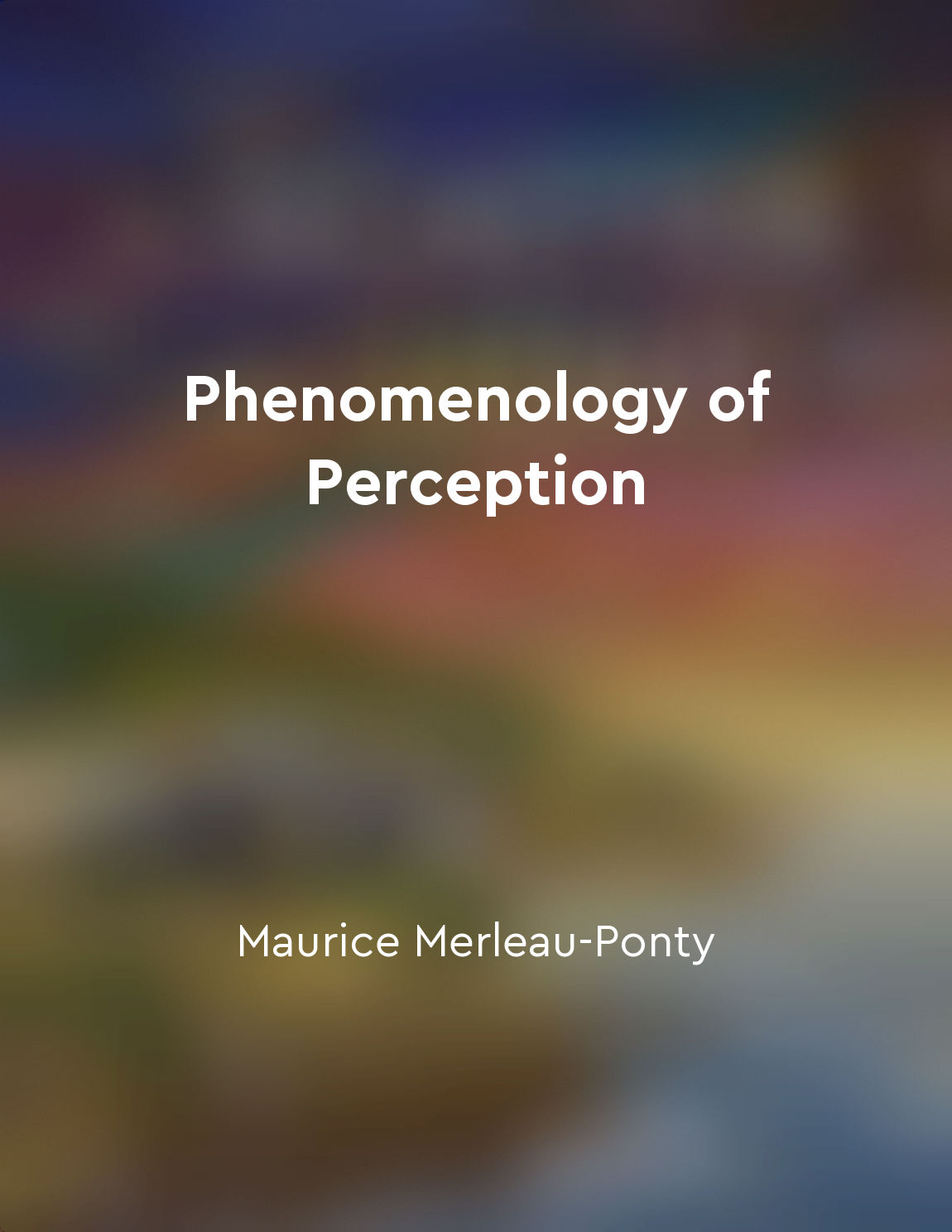Not all visual impairments are the same from "summary" of The Mind's Eye by Oliver Sacks
Visual impairments come in many forms, each with its own unique characteristics and effects on perception. Some individuals may experience a loss of central vision, making it difficult to see objects directly in front of them. Others may have difficulty with peripheral vision, causing them to miss objects on the edges of their field of view. Some may have trouble with depth perception, making it challenging to judge distances accurately. In addition to these differences in the physical aspects of vision, there are also variations in the way individuals experience and cope with their visual impairments. Some may adapt quickly and find ways to work around their limitations, while others may struggle to adjust to their new way of seeing. The emotional impact of visual impairments can also vary greatly from person to person, with some feeling frustrated or isolated, while others may find a sense of freedom or creativity in their altered perception. Furthermore, the causes of visual impairments can be diverse, ranging from genetic conditions to acquired injuries or diseases. Each individual's journey with their visual impairment is shaped by a multitude of factors, including their personal history, support system, and coping mechanisms. This complexity adds another layer of variation to the experience of living with a visual impairment. It is important to recognize and appreciate these differences in visual impairments, as they highlight the diversity and resilience of the human experience. By understanding the unique challenges and strengths of each individual with a visual impairment, we can cultivate greater empathy, support, and inclusivity in our communities. The richness of human perception extends far beyond the limitations of the physical eye, encompassing a vast spectrum of experiences and perspectives.Similar Posts

Our bodily experiences shape our sense of self
Our sense of self is not something that exists in isolation from the world around us. Rather, it is intricately linked to our b...
Unconditional love
In my sister, Beth, I have found a love unlike any other. It is a love that knows no conditions, no boundaries, no limits. It i...
Sentiment influences belief
In our daily experience, we often find that our beliefs about the world are influenced by our sentiments or emotions. When we h...
We attract what we focus on with our thoughts
When we focus on something with our thoughts, we are actually attracting that thing into our lives. This is not just some abstr...
Perceiving is not an inner pictureshowing
When we think about perceiving, we often imagine it as a sort of inner pictureshowing. This idea suggests that when we perceive...
Overconfidence can cloud our judgment and lead to poor choices
The belief in our own abilities, the feeling that we are right and that we know what we are doing, can sometimes lead us astray...
Foster a community of body acceptance and support
Creating a space where body acceptance and support are not only encouraged but actively practiced is essential in fostering a c...

Dr. Sacks' empathy and understanding shine through in each clinical tale
Dr. Sacks' ability to connect with his patients on a deep emotional level is evident throughout the clinical tales he shares in...

Dr. Sacks' empathy and understanding shine through in each clinical tale
Dr. Sacks' ability to connect with his patients on a deep emotional level is evident throughout the clinical tales he shares in...
